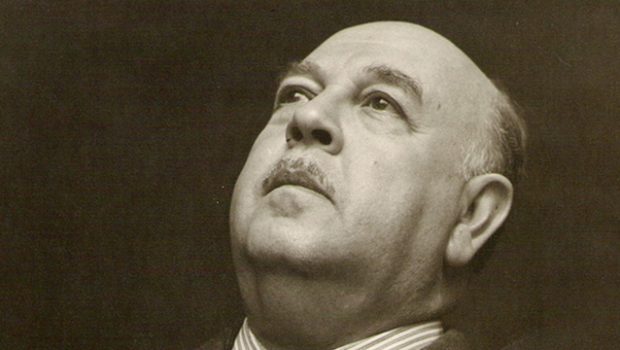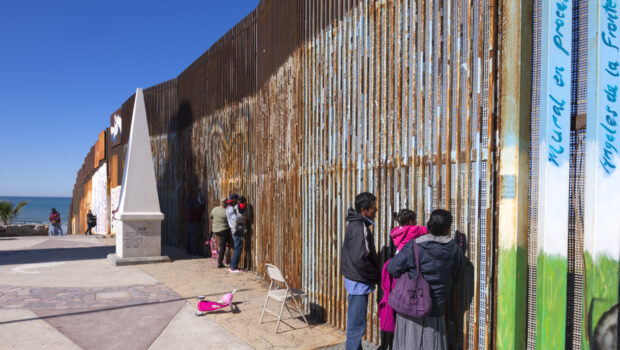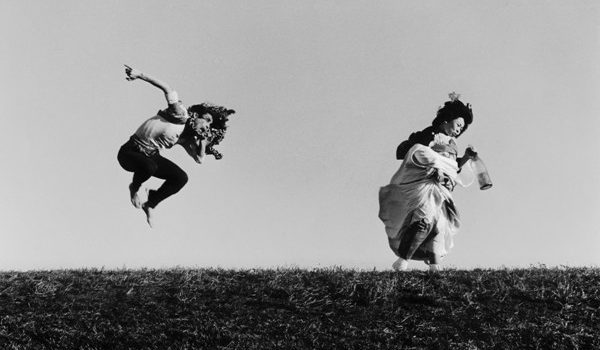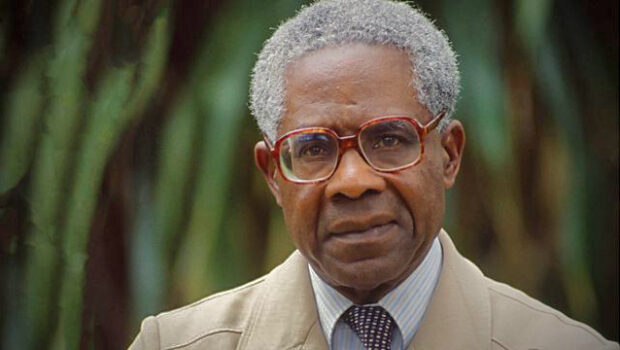Cumbia con ganas
Sylvia Aguilar Zéleny
Belén and Ramiro dance and laugh and drink. They dance. They laugh. They drink. There’s beer, lots of beer. On the table stands a bottle of aguardiente con Jamaica, a drink that Guatemalans worship and adore. Everybody is drunk, drunk and happy. Belén and Ramiro, her older brother Joaquín —and Yamilet, his wife. There are also a few neighbors, and all of them are laughing long and hard as they party.
La Cumbia Sampuesana has played at least three times already. It is Ramiro’s favorite, and since it’s his birthday, well, “Cumbia Sampuesana it is,” Yamilet says as she plays it again on her computer YouTube, her only sound system. The Cumbia becomes the evening’s anthem. Nobody is complaining, though. In fact, everyone likes it and the whole gang dances and sings:
La cumbia sampuesana
‘pa que baile con ganas
Yes, they are dancing hard, “con ganas”. They are celebrating Ramiro’s birthday and even though no one dares say it out loud, tonight they are also celebrating that he and Belén finally made it to the States. It’s been several weeks now, but you can still see in their faces and the way they move the exhaustion, the lack of food and water, the lack of direction.
Nobody says anything, but everyone can tell Ramiro has a slight limp. Belén has that look in her eyes that says without words what her soul and body –especially her body– have endured. After all, how many of those attending the party haven’t gone through the same thing? But now, right now, nobody gives it a second thought. The night slips away as they dance, laugh, drink.
La cumbia sampuesana
‘pa que baile con ganas
Ramiro lifts Belén and spins her for a bit. She says, “watch your leg, Flaco.” Ramiro ignores her, he’s happy, he’s drunk. Really drunk. They spin and spin, and the guests applaud and everyone at the party shouts “hey, hey, hey.” High spirits all around.
After one more turn, Ramiro lowers Belén to the floor just as Celso Piña’s solo begins. Then he pulls away from his wife, moves to the center and using his hands, plays an accordion that everyone can see, even though it’s invisible. Ramiro dances and plays at the same time. “Míralo, se cree Celso!” shouts Joaquín. He has had the backs of the new arrivals since they first started out. What would they have done without Joaquín? Where would they be, how would they be now?
“Hey, hey, hey,” Joaquín claps and shouts as his brother-in-law channels Celso. At this party, everybody drinks, laughs, and dances con ganas. Everybody.
Joaquín and Yamilet cleared out that little spare room in the backyard, the one he used to use as a shop and Yamilet, as storage. “You can stay with us in the house, you know,” Joaquín told them. Yamilet was the one who insisted that they’d better not. “Not that I mind, at all. I grew up in a house with twenty brothers! But married people need their own roof, right? Better for them to have their privacy.” How will they ever repay so much kindness, Belén wonders sometimes.
Joaquín left Coatepec six years ago, and his life is here now. A wife, two kids, and three jobs later, Gabacho has become home. It hasn’t been long since he became a legal resident thanks to his marriage to Yamilet, who is Puerto Rican. “Mira nomás this one, he had to marry me, a girl from a place that’s nothing but a gringo colony, so he could get his papers.” Yamilet has a great big heart, that’s what everyone in the neighborhood says.
When he arrived, Joaquín was flat broke. Sending money home was out of the question. But little by little, he started earning more and more and was able to help his family. From time to time, on those Sunday morning calls he’d invite his brothers or sisters to come, but “it was more out of politeness than a serious invitation,” as his mom used to say. Belén barely remembered her brother, there were so many years between them. Years and life.
Truth be told, Joaquín did not insist too much on having any of his brothers or sisters cross like he did to get here, because he knew. Because he knows what you see and experience on that road. Joaquín never asked his brother-in-law or sister anything about their journey. He doesn’t have to, he knows all too well what the deal is. Some things don’t change, they just get worse.
It was Belén’s idea to cross. As for Ramiro, he would have followed her anywhere. Belén was leaving a life and home, but Ramiro wasn’t leaving anything anymore, what was his, what he had, had been left behind long ago, when he got out of Guatemala early in the year 2000. They met at a baile, in Coatepec. Ramiro was working there illegally, Belén was the only one of her sisters who didn’t have a husband or children. Belén was the only one of her sisters who didn’t have a future.
“Real money and real living is on the other side, Rami,” Belén would say to him, over and over. “Let’s get married and go, I have a brother there.” Ramiro didn’t say yes, but he didn’t say no. This, despite the fact that he knew how things were, despite the fact that he knew La Bestia backwards and forwards. Ramiro got off La Bestia in Acayucan and promised himself never to get back on. Before coming to the States, he was happy in his little room with a toilet there in Coatepec. He didn’t care about commuting to Xalapa to work, he didn’t care about hitchhiking back to town.
They hadn’t been married for five months when they started their journey North. Belén thought they’d never get there. Ramiro, more likely than not, didn’t want to.
*
The party goes on for hours and hours. Some guests have left, here and there someone has fallen asleep on the table or sofa. Ramiro has emptied more than half of the bottle of aguardiente he got from who knows where. Joaquín drinks with him, and every now and then says “this crap tastes like perfume,” but he is still keeping up with Joaquín, drink for drink.
Belén and Yamilet drink beer and gossip and laugh. They sing like Shakira and then laugh again. The kids went to bed a while ago. Belén feels important when they say to her, “Oiga, tía,” and she approves of how Yamilet has raised them. She likes Yamilet, she feels as if they are sisters. She doesn’t understand why, if she’s from Puerto Rico and speaks English, she married her brother, who had no papers and no money. Yamilet takes good care of Joaquín and the kids. Yamilet takes care of everybody. She remained patient when Joaquín kept refusing to marry her. “I love you more than your papers,” he’d say out of pride. “But without papers, we can’t be together forever in the same country,” she’d reply. “Later on, when I finally convinced him that we should get married, he started in on how we couldn’t have kids, because he wasn’t making enough money.” He’s a good man, Belén’s brother, and everyone knows it. “And Chacha, your brother is so happy you two are finally here.”
La cumbia sampuesana
‘pa que baile con ganas
“Ay, that song again, why do you Mexicans like it so much?” Belén shrugged; she doesn’t remember hearing it that often on the radio or at parties or in buses. “Do you miss home?” Yamilet asks her, but doesn’t let her answer, “you can’t miss everything that’s still there, someplace, me on the other hand… I lost everything, house, furniture, everything, I really do miss home.” Yamilet’s family had lost everything in a hurricane that hit Puerto Rico a few years earlier. “Goddamn Irene, she took everything,” she said when she told her the story for the first time, and Belén had wondered who this Irene who had taken everything from them was. “But in the end, I owe my life to Irene, if it wasn’t for her I would not have left my life on that island that’s been going under for years, I wouldn’t have left that job that was pulling me under.”
Yamilet has a way of telling things, a rhythm in her words. It’s as if she were always in a good mood, singing. Even when she’s angry, you can’t tell. “And Chacha, don’t you go thinking that life here is paradise, here you have to swim fast to keep from sinking, but it’s better, you’ll see, and little by little you two will be better off. Yamilet says Chacha instead of muchacha, like those women along the border who say mija instead of mi hija. Belén never fails to be surprised at the affection people sometimes deposit in everyday words.
*
It is almost two in the morning, and everybody is really wasted now. The guests have all gone, only the four of them remain. Belén picks up plates and cups, she puts the chairs back in place. Yamilet says no, “Ay, what a drag, we’ll clean up tomorrow, Chacha.” She pulls Joaquín by the arm to bed and says good night. Belén then does the same, she helps Ramiro get up from the sofa. She ignores him when he says “just one more little drink.” Belén turns out the lights. “No more little drinks,” she says, “come on, let’s go home,” then she opens the door into the backyard, to their little spare room in the backyard.
Home. How strange, using that word again. It feels almost natural to use it again. “Let’s go home,” “I left it at home,” “did you turn out the lights back home?” It didn’t matter that home was just a room with a toilet, a tiny sink and a little window that looked out over an alley. That was her home, and home is better than any of the places where the slept on their way here. A better home than sleeping outdoors. A better home than the shelter of all those bus stops. A better home than that big warehouse in Texas.
Belén and Ramiro cross the backyard. Well, Belén does all the work. Ramiro is like a rag doll with no willpower. They almost fall over a couple of times. He sticks to the edge of the door when she tries to open it. Belén isn’t angry, no, she has never seen him like this before and the whole situation strikes her as funny, but she tries to hold it in so as not to wake him, so he won’t be frightened, so she won’t knock him over. Unlike all the cousins, friends, and boyfriends she had in her hometown, Ramiro doesn’t drink because, as he says, “All the men in my family have lost everything to booze.”
Ramiro is from Santa María de Jesús, a place Belén only knows from the stories that he told her while they crossed that long and desolate desert of Sonora. Stories he told her to entertain her and make her smile, “because your smile lights our way, Belencita.” Ramiro told her about Volcán de Agua and how when he was a kid, he and his friends would climb up there and bring ice back down to sell in town. “Mentiras,” Belén would say, and they both would laugh. Could it be true that Ramiro collected ice to sell it so that he could buy candy?
“Such a good man, Ramiro,” Belén thinks while she settles him into bed. He has been sweeter to her than anyone else in her life. Almost as good as Joaquín, maybe that’s why they get along so well? Ramiro did everything he could to watch over her on the way there, he wanted to protect her always. And to think of all those times when she asked herself, “why did we do this, why did I convince him to come when we were doing so well there? We didn’t have much, but it was all ours.” If only she hadn’t talked him into it, if only he hadn’t let her talk him into it, neither of them would have went through everything that happened on their odyssey to the United States.
She takes off one of his shoes. Then the other. “Belén, Belén…” Ramiro says. His breath smells like fermented Jamaica and cigarettes. “Belén te amo, ¿lo sabes?” Belén tells him she loves him too, but it’s time for bed. She takes off his socks, because Ramiro hates sleeping with his feet too warm. She unbuttons his shirt and manages to lift him up and take it off. First one sleeve. Then the other. She places his head on the pillow.
When Belén is about to stand up to take her own clothes off, Ramiro says to her, “No, where are you going? Don’t leave me Belén, don’t leave me.” He grabs her by the blouse, sits her down, and lies on her lap. He smiles, Belén smiles and lights up the room. She caresses his hair, the way he likes, massaging gently in circles with her fingertips. When Ramiro’s weight lets her know he has finally fallen asleep, she tries to push him and settle him onto the bed. Impossible.
Ramiro is already snoring. Belén can’t move, so she decides to stay a little while longer, after all, what else is there to do? Ramiro’s hair is straight, straighter than hers, straighter than the mane of a horse and just as long. “You need a haircut,” she tells him, even though he can’t hear her. She takes a lock between her fingers, “Ramiro mane,” she thinks. Ramiro starts to cough and when he moves, Belén manages to escape.
She tosses her sandals, or chancletas as Yamilet calls them. She can’t stand them, but they are the only thing her feet will stand. The soles of her feet haven’t healed despite the fact that weeks have gone by. Despite the many pomades and many remedies that Yamilet and the neighbor women have applied. Then she takes off her dress, which is also Yamilet’s, like everything else she has now; dresses, shorts, and blouses that she leaves practically new. The seam has left a mark on her side. Belén scratches at it when suddenly, Ramiro starts to cough and cough and cough. He sits up half-asleep and the coughing becomes nausea, gagging, and before Belén can come up with the word for it, she runs to the bathroom and brings the waste bin to Ramiro, who misses it and ends up throwing up on the floor, and what’s worse, on the naked feet of his wife. “Ay, that’s disgusting,” Belén thinks.
And then comes more gagging, and more, again and again. Since the waste bin is already in front of him, Belén places his hands on either side so that he can hold it while she steps back. Belén can’t help laughing upon seeing Ramiro like a child who put a piece of badly cooked chicken skin into his mouth and doesn’t know what to do with it. Ramiro pukes and pukes and Belén laughs and laughs. He glares at her sidelong, and she is pure laughter. But the smell of Ramiro’s vomit is so much and so strong that Belén starts to feel sick as the bits of rice, pork chop and fried banana fly from Ramiro’s mouth.
Sick, very sick.
So sick, that she starts to feel her stomach churn and the bile rising up in her throat. She runs to the bathroom, lifts the toilet seat and starts vomiting and vomiting herself. There’s no one laughing at her, no one there but her, puking up everything she learned to cook with Yamilet that day: the rise and the beans, the bits of pork chop, the fried bananas.
“Belencita, tás bien?” asks Ramiro, his voice hoarse.
Belencita.
Tás bien?
The last time he asked her that, Belén was far from being all right. The soldiers had just stopped them, the soldiers had taken everyone off the bus. The soldiers had taken her along with three other women. Why them? Why not the others? It was her youth, her long hair, her rosy cheeks? What was it? The soldiers made her do things, things she has never talked about to anyone. “Belencita, tás bien?” Ramiro asked her when she returned to the bus, and she just nodded while putting her blouse back in place. Ramiro nodding with her, convincing himself that everything was all right.
More and more vomit. Belén is puking up everything, the beer, the Coca-colas, the tres leches cake. Belén is puking up the music, the laughter, the dance. Belén pukes up the desert of Sonora, the hands of the soldiers and their taste of salt of sweat. Belén pukes up the soldiers and one after another, they leave her stomach and go into the toilet. She lowers the lever and everything starts to spin and spin.
“Belencita. Belén. Tás bien?”
The bile and nausea return to her throat and she starts over again, to get everything out: the remains of dinner and the last few weeks. Ramiro is beside her now, he strokes her back and she wishes he wouldn’t, that he would stop touching her. “Belencita”. When her stomach is finally empty, when Ramiro’s voice and her crawling skin are the only things she feels, a realization hits her. It strikes as suddenly as the worst things in life always come: when was her last period?
Belén drops the toilet seat, Ramiro lowers the lid and the lever, the sound of the swirling water distracts her for a moment. “That might also be why we didn’t eat, because we were too weak, because of the heat, the thirst, the lack of rest.”
Ramiro gives her his hand to help her to her feet and when she takes it, she breaks out in tears. He doesn’t understand what’s wrong with his wife, but if there’s something he’s learned, it’s that when a woman cries, you need to hold her and tell her everything is all right. He did that the entire journey, held her, stroked her back, kissed her forehead and told her everything would be all right. Over and over, he told her that they could turn back if she wanted to, but she never wanted to. For Belén, there was no going back.
Belén crying on her husband’s shoulder. Belén clinging to her husband’s body. “It was all the food and dancing and drinking, don’t be ashamed, we had a really nice time, didn’t we?” Belén doesn’t answer. “But wait, better keep those tears for tomorrow, we’re going to be really hungover and then you are really going to want to cry.” The tears are joined then by Belén’s laughter. Ramiro had that, a way to make you laugh in the most unexpected situations. “We’re going to be all right, Chiquita, no matter what happens we are going to be all right because we are together, and we are not alone.”
She draws back from him, looks him the eye and for a moment, is about to tell him, that in all likelihood, they were not alone. Then she gags again, Ramiro lifts the toiled seat, but only foam comes out of Belén’s stomach.
“It’s my fault. No, no, no, it’s Celso’s fault, and his cumbia made us drink con ganas.”
She tries to smile, cleaning her mouth with a rag and says to herself that it’s not Celso’s fault or Ramiro’s fault, it’s not her fault either, everything that happened, everything they went through, everything they did to her is not her fault and cannot be her fault. The fault lay with her ganas, those ganas to leave behind what little they had in search of this. This.
He flushes one more time. He lifts up Belén and says to her, “let’s wash your feet.” Ramiro turns on the showerhead and when she draws near, he stops her, “it’s still too cold,” he says. Then he squats down, takes one of Belén’s feet and rinses it off, he rubs it, he caresses it under the warm water. Then the other. He does this carefully, affectionately, he does this as only he does things.
Meanwhile Belén, sitting on the toilet, dries her feet, Ramiro sticks his head into the shower. He scrubs his face, wets his hair, drinks water with his mouth wide open, rinses, then spits. He repeats this twice more. Belén hands him his toothbrush with paste while she brushes her own teeth in front of the mirror. When they finish, Ramiro takes her by the hand. “Let’s go to bed, Chiquita, you’ll see, we’ll feel better in the morning.”
Ramiro settles onto the right side of the bed and stretches his left arm out to make room for Belén. She snuggles up to him. Her ear over his heart. They close their eyes, perhaps each of them thinking that yes, tomorrow will be a better day.
 Sylvia Aguilar Zéleny is a fiction writer, translator, and professor at the University of Texas at El Paso (UTEP). She teaches English Composition courses at the El Paso Community College (EPCC), and Creative Writing for the undergrad and the graduate program at UTEP. She has published eight books of fiction in Mexico, and a young adult series titled Coming Out in the United States. Her novel Todo Eso es Yo won the Tamaulipas National Book Award in Mexico in 2015. She bikes, knits, and believes in green tea. Her cat’s name is Nimona.
Sylvia Aguilar Zéleny is a fiction writer, translator, and professor at the University of Texas at El Paso (UTEP). She teaches English Composition courses at the El Paso Community College (EPCC), and Creative Writing for the undergrad and the graduate program at UTEP. She has published eight books of fiction in Mexico, and a young adult series titled Coming Out in the United States. Her novel Todo Eso es Yo won the Tamaulipas National Book Award in Mexico in 2015. She bikes, knits, and believes in green tea. Her cat’s name is Nimona.
Belén y Ramiro bailan y ríen y beben. Bailan. Ríen. Beben. Hay cervezas, muchas cervezas. Sobre la mesa una botella de aguardiente con jamaica, una bebida que los guatemaltecos aman y veneran. Todos están borrachos, borrachos y contentos. Belén y Ramiro, Joaquín –el hermano mayor de Belén– y Yamilet, su esposa. También hay algunos vecinos y todos juntos están risa y risa en la fiesta.
La Cumbia sampuesana ha sonado al menos tres veces ya. Es la canción favorita de Ramiro y como es su cumpleaños, pues “Cumbia sampuesana it is”, dice Yamilet cuando la pone una vez más en el youtube de su compu que se ha convertido en equipo de sonido. La cumbia se vuelve el himno de la noche. Nadie se queja, hasta eso, a todos les gusta y todo mundo baila y canta:
La cumbia sampuesana
‘pa que baile con ganas
Sí, bailan con ganas. Celebran el cumpleaños de Ramiro y también, aunque nadie hable de eso, esta noche celebran que Belén y Ramiro finalmente llegaron por fin a Estados Unidos. Ya han pasado varias semanas, pero todavía se les nota en el rostro y en el caminar el cansancio, la falta de agua, de comida; la falta de rumbo.
Nadie hace comentarios, pero todos se dan cuenta de que Ramiro cojea un poco. Belén tiene una mirada que dice, sin decir, todo lo que su alma y su cuerpo –especialmente su cuerpo– han tenido que enfrentar. ¿Cuántos de los asistentes a esta fiesta no han pasado por lo mismo en realidad? Pero ahora, ahorita mismo, nadie piensa en eso; la noche se les va en bailar, reír, beber.
La cumbia sampuesana
‘pa que baile con ganas
Ramiro levanta a Belén, le da un par de vueltas. Ella le dice “cuidado con la pierna, flaco.” Ramiro no le hace caso, está feliz, está borracho. Bien borracho. Los dos dan vueltas y vueltas y los invitados les aplauden y todos en la fiesta dicen “hey, hey, hey.” Todo es buen humor.
Después de una vuelta más, Ramiro deja a Belén en el piso justo cuando comienza el solo de Celso Piña. Entonces, Ramiro se separa de su mujer, se para en medio y en sus manos hay un acordeón que, aunque invisible, todos ven; Ramiro baila y toca al mismo tiempo. “Míralo, se cree Celso!”, grita Joaquín. Él ha sido el respaldo de los recién llegados desde el principio del viaje. ¿Qué hubieran hecho sin Joaquín? ¿Dónde estarían ahora? ¿Cómo?
“Hey, hey, hey”, aplaude y grita Joaquín mientras su cuñado se transforma en Celso. En esta fiesta todos beben, ríen y bailan con ganas. Todos.
Joaquín y Yamilet limpiaron el cuartito en el patio, ese que él usaba antes de taller y Yamilet de almacén. “Pueden quedarse aquí adentro en la casa, you know”, les dijo Joaquín. Fue Yamilet la que insistió en que no, “Not that I mind, at all, si yo crecí en una casa con veinte hermanos. Pero el casado casa quiere, ¿no? Mejor que tengan su intimidad.” ¿Cómo van a pagar tanta amabilidad? Belén piensa a veces.
Joaquín dejó Coatepec seis años atrás, y su vida está ahora aquí. Una esposa, dos hijos, y tres trabajos después, el gabacho se convirtió en su hogar. Hace apenas bien poco que es residente legal, gracias a la boda con Yamilet, que es puertorriqueña. “Mira nomás this one, he had to marry me, que vengo de un lugar que no es más que una colonia gringa, para tener papeles”. Yamilet tiene un corazón enorme, es lo que todos dicen en el barrio.
Cuando recién llegó, Joaquín no tenía ni un peso, imposible pensar en que mandaría dinero a casa. Pero poco a poco, fue ganando más y más y pudo ayudarle a su familia. En alguna ocasión, en esas llamadas de domingo en la mañana, invitó a sus hermanos y hermanas a venir, pero “fue más un decir que una invitación en serio”, decía su mama. Belén apenas se acordaba de su hermano, son tantos los años entre ellos. Los años y la vida.
La verdad es que Joaquín no insistía demasiado en que alguno de sus hermanos o hermanas cruzara como él para llegar acá, porque él sabía, porque él sabe lo que se ve y se vive en ese camino. Joaquín nunca le pregunta a su cuñado o a su hermana nada sobre su viaje, no necesita; él sabe bien lo que pasa. Hay cosas que no solo no cambian, empeoran.
Fue idea de Belén cruzar. Ramiro, Ramiro la hubiera seguido a donde sea. Si Belén dejaba una vida y una casa, Ramiro no dejaba nada ya, lo suyo, lo que tenía, lo había dejado hace mucho, cuando salió de Guatemala a principios del 2000. Se conocieron en un baile, en Coatepec. Ramiro trabajaba ilegalmente, Belén era la única de sus hermanas que no tenía ni esposo ni hijos. Belén era la única de sus hermanas que no tenía futuro.
“El dinero y la vida de veras está allá, Rami”, le repetía Belén. Nos casamos y nos vamos, allá tengo un hermano.” Ramiro no dijo que sí, pero tampoco que no. Y eso que él sabía bien cómo estaban las cosas, y eso que él a La Bestia la conocía al derecho y al revés. Ramiro se bajó de La Bestia en Acayucan y se prometió no volverse a subir. Antes de venir a Estados Unidos, estaba feliz en su cuartito con baño adentro, allá en Coatepec. No le importaba ir y venir a Xalapa para trabajar, no le importaba regresarse de raite al pueblo.
No tenían ni cinco meses de casados cuando comenzaron su viaje hacia el norte. A Belén le parecía que nunca llegarían. Ramiro, seguramente, no quería llegar.
La fiesta sigue por horas y horas. Algunos de los invitados se han ido, uno que otro se ha dormido en un sillón o sobre la mesa. Ramiro se ha tomado más de la mitad de ese aguardiente que nadie sabe ni de dónde sacó. Joaquín bebe con él, de cuando en cuando dice “esta madre sabe a perfume”, pero igual toma y toma al ritmo de Joaquín.
Belén y Yamilet toman cerveza y chismean y ríen, cantan como Shakira y luego ríen otra vez. Los niños hace rato se fueron a la cama. Belén se siente importante cuando le dicen, “oiga tía”, le parece que Yamilet los tiene bien educaditos. Yamilet le cae bien, ya la siente como hermana. No entiende bien por qué si es de Puerto Rico y habla inglés se casó con su hermano que ni papeles ni dinero tenía. Yamilet cuida bien de Joaquín y de los niños, Yamilet cuida de todos ellos. Fue paciente cuando Joaquín le decía no y no a casarse. “Te quiero más a ti que a tus papeles”, le decía él muy orgulloso. “Pero sin los papeles no estaremos juntos para siempre en el mismo país”, le contestaba ella. “Later on, cuando finalmente lo convencí de casarnos, me salió con que no kids porque no le alcanzaba”. Es un buen hombre, el hermano de Belén y todos lo saben. “Chaaacha y es tan feliz tu hermano de que por fin estén ustedes aquí”.
La cumbia sampuesana
‘pa que baile con ganas
“Ay, esa canción otra vez. ¿Por qué les gusta tanto a ustedes los mexicanos?” Belén bajó y subió los hombros, la verdad es que ni siquiera recuerda haberla oído demasiado en la radio o las fiestas o en los camiones. “¿Extrañas tu casa?” Le pregunta Yamilet, pero no la deja responder, “no puedes extrañar lo que sigue ahí, en algún lugar; en cambio yo…, perdí todo, casa, muebles, todo; yo sí que extraño el hogar”. La familia de Yamilet lo perdió todo en un huracán que golpeó Puerto Rico hace unos años. “Caraja Irene, nos quitó todo”, decía cuando le contó la historia la primera vez y Belén se preguntaba quién era esa tal Irene que les había quitado todo. “Pero a la larga, es a Irene a quién le debo mi vida, si no hubiera sido por ella yo no hubiera dejado mi vida es esa isla que está hundiéndose desde hace años, no hubiera dejado ese trabajo que me estaba hundiendo”.
Yamilet tiene una forma de contar las cosas, un ritmo en sus palabras, es como si siempre estuviera de buenas y cantando. Incluso cuando está enojada no puede darse cuenta. “Y Chacha, no te creas que acá es un paraíso, aquí también tiene uno que nadar rápido para no hundirse, pero es mejor, ya lo verás; ustedes dos poco a poco estarán mejor”. Yamilet dice Chacha en vez de muchacha como esas señoras en la frontera decían mija en vez de mi hija. A Belén no deja de sorprenderle el cariño que la gente a veces deposita en las palabras de todos los días.
*
Son casi las dos de la mañana, ahora sí que todos están bien borrachos. Los invitados se han ido, solo quedan los cuatro. Belén levanta platos y vasos, reacomoda las sillas. Yamilet le dice que no, “Ay, qué pereza, mañana limpiamos, chacha”. Se lleva a Joaquín del brazo a la cama y le dice buenas noches. Belén entonces hace lo mismo; le ayuda a Ramiro a levantarse del sillón, lo ignora cuando él dice “un traguito más”. Belén apaga las luces; “nada de traguito”, le dice, “ya vámonos a casa”, y abre la puerta del patio, hacia su cuartito en el patio.
Casa. Qué raro usar esa palabra otra vez. Se siente casi natural usarla otra vez. “Vamos a casa”, “lo dejé en la casa”, “¿apagaste la luz de la casa?” No importa que la casa solo sea un cuarto con baño, un lavamanos chiquito y una ventana pequeña que mira a un callejón. Esa es su casa y esa casa es mejor que cualquiera de los lugares en los cuales durmieron antes de llegar aquí. Una casa mejor que la intemperie. Una casa mejor que los techos de las muchas paradas de camión. Una casa, mejor que ese enorme almacén donde los tenían en Texas.
Belén y Ramiro cruzan el patio; bueno, Belén lo cruza, Ramiro solo se deja llevar como un muñeco de trapo sin voluntad. Están a punto de caerse un par de veces. Él se pega en la orilla de la puerta, cuando ella trata de abrirla. Belén no está enojada, no, nunca lo había visto así y la situación entera le da risa, pero trata de aguantarse, para no despertarlo, para no asustarlo, para no tirarlo. A diferencia de todos los primos, amigos y noviecitos que tuvo en su pueblo, Ramiro no bebe porque, como él mismo dice, “Todos los hombres de mi familia lo han perdido todo por el alcohol”.
Ramiro es de Santa María de Jesús, un lugar que Belén sólo ha visto en esas historias que él le contaba mientras cruzaban el largo y desolado desierto de Sonora. Historias que le contaba para entretenerla y hacerla sonreír, “porque tu sonrisa nos ilumina el camino, Belencita”. Ramiro le contó del Volcán de Agua y cómo, cuando era niño, él y sus amigos subían para traer hielo y venderlo en el pueblo. “Mentiras,” le decía Belén, y los dos se reían. ¿Será cierto que Ramiro juntaba hielo para venderlo y poder comprar dulces?
“Tan bueno, Ramiro”, piensa Belén mientras lo acomoda en la cama. Ha sido más dulce con ella que nadie en su vida. Casi tan bueno como Joaquín, ¿será por eso que se llevan tan bien? Ramiro hizo todo lo que pudo por cuidarla a lo largo del trayecto, quería protegerla en todo momento. Y pensar en todas esas veces cuando ella se preguntó “¿por qué hicimos esto, por qué lo convencí de venir si estábamos tan bien allá, con poquito pero nuestro? Si tan solo ella no lo hubiera convencido, si tan sólo él no se hubiera dejado convencer, ninguno de los dos hubiera pasado por todo eso que se les atravesó en su odisea a los Estados Unidos.
Le quita un zapato. Luego el otro. “Belén, Belén…”, dice Ramiro. El aliento le huele a jamaica fermentada y cigarros. “Belén, te amo. ¿Lo sabes?” Belén le dice que ella también pero que es hora de dormir. Le quita los calcetines, porque a Ramiro le choca dormir con los pies calientes. Le desabotona la camisa y, como puede, lo levanta y se la quita. Una manga. Luego la otra. Le acomoda la cabeza sobre la almohada.
Cuando Belén está a punto de pararse, para ella misma quitarse la ropa, Ramiro le dice, “No, ¿a dónde vas? No me dejes Belén, no me dejes”. La jala de la blusa, la sienta, se acomoda en su regazo. Sonríe, Belén sonríe e ilumina la habitación. Le acaricia el cabello como a él le gusta, masajeando suavemente con las yemas de sus dedos en círculos. Cuando el peso de Ramiro le avisa que por fin se ha quedado dormido, ella trata de empujarlo y reacomodarlo en la cama. Imposible.
Ramiro ya está roncando, Belén no se puede mover, decide quedarse ahí un ratito más; total, ¿qué tiene que hacer? El cabello de Ramiro es lacio, más lacio que el de ella, más lacio que la crin de un caballo, igual de largo también. “Ya hay que cortártelo”, le dice, aunque él ya no la oye. Toma un mechón entre los dedos, “crin de Ramiro”, piensa. Ramiro comienza a toser y, cuando se mueve, Belén logra escaparse.
Ella avienta las chanclas; “chancletas”, como les dice Yamilet; no las soporta, y eso que es lo único que sus pies aguantan. La planta de sus pies no termina de aliviarse a pesar de que ya han pasado semanas. A pesar de las muchas pomadas y los muchos remedios que Yamilet y las vecinas le han puesto. Luego se quita el vestido, un vestido de Yamilet, quien le ha dado todo lo que ahora tiene, vestidos, shorts y blusas que deja casi nuevas. La costura se le ha marcado un poco en el costado, Belén se rasca y rasca cuando de pronto Ramiro vuelve a toser, toser y toser. Se sienta semidormido y la tos se convierte en náuseas, en reflujo; y antes de que Belén dé con la palabra corre al bote que sirve de baño y lo trae frente a Ramiro, quien no atina y termina vomitando en el piso y, lo que es peor, en los pies desnudos de su mujer. “Ay, qué asco”, piensa Belén.
Y luego viene otra arcada, una más, otra y otra, pero el bote está ya frente a él; Belén le pone las manos en cada lado para que él lo sostenga mientras ella se hace para atrás, a Belén le gana la risa al ver a Ramiro así como un niño que se metió en la boca un pedazo de piel de pollo mal cocida y no sabe qué hacer con él en la boca. Ramiro vomita y vomita y Belén ríe y ríe. Él la mira de reojo y ella es pura risa. Pero es tanto y tan fuerte el olor del vómito de Ramiro que Belén comienza también a sentir asco por los restos de arroz, chuleta y plátano frito saliendo de la boca de Ramiro.
Asco, mucho asco.
Tanto asco, que comienza a sentir cómo se le revuelve el estómago y el reflujo a subir por su garganta, corre al baño, abre la taza y comienza ella misma a vomitar y vomitar. No hay nadie riéndose de ella, no hay nadie más que ella vomitando y sacándolo todo lo que había aprendido a preparar con Yamilet ese día: el arroz y los frijoles, los cachitos de chuleta, los plátanos fritos.
“Belencita, ¿tas bien?” preguntó Ramiro con una voz ronca.
Belencita.
¿Tas bien?
La última vez que él le preguntó eso mismo, Belén estaba lejos de estar bien. Los soldados los habían detenido; los soldados los habían bajado a todos del camión. Los soldados se la habían llevado junto con otras tres mujeres. ¿Por qué ellas? ¿Por qué a las otras no? Era la juventud, el cabello largo, las mejillas rosadas, ¿qué era? Los soldados las forzaron a hacer cosas, cosas de las que nunca ha hablado con nadie. “Belencita, ¿tas bien?” Le preguntó Ramiro cuando volvió al camión y ella solo dijo que sí con la cabeza mientras se recomponía la blusa. Ramiro diciendo que sí con la cabeza, convenciéndose él también de que todo estaba bien.
Más y más vómito. Belén vomita todo, la cerveza, las coca-colas, el pastel de tres leches. Belén vomitó también la música, las risas, el baile. Belén vomita el desierto de Sonora, las manos de los soldados y su sabor a sal y sudor. Belén vomita a los soldados y uno tras otro salen de su estómago hasta el inodoro. Ella le baja a la palanca y todo da vueltas y vueltas.
“Belencita.”
Belén. ¿Tas bien?”
El reflujo y el asco vuelven a su garganta y vuelve a comenzar, saca todo: los restos de la cena y de las últimas semanas. Ramiro está ahora a su lado, le acaricia la espalda y ella quisiera que no lo hiciera, que no la tocara. “Belencita”. Cuando su estómago ha quedado totalmente vacío, cuando la voz de Ramiro y el escalofrío en la piel son lo único que siente le viene entonces una certeza. Llega tan de golpe como llegan siempre las peores cosas en la vida: ¿hace cuánto tuvo su última regla?
Belén suelta la taza del baño, Ramiro baja la tapa y la palanca, el sonido de ese remolino de agua la distraen por un segundo, “también puede ser porque no comíamos, porque estábamos muy débiles, porque el calor, la sed, porque la falta de descanso”.
Ramiro le da la mano para levantarse y cuando la toma, se suelta llorando. Él no entiende qué le pasa a su mujer, pero si algo ha aprendido es que cuando una mujer llora, hay que abrazarla y decirle que todo está bien. Lo hizo durante toda esa trayectoria, abrazarla, acariciar su espalda, besarla en la frente y decirle que todo estaría bien. Muchas veces también le dijo que podían devolverse si ella quería; pero nunca quiso, para Belén no había pasos atrás.
Belén llorando en el hombro de su esposo. Belén aferrándose al cuerpo de su esposo. “Fue por todo lo que comimos y bailamos y bebimos, que no te dé vergüenza, la pasamos muy bien, ¿a poco no?” Belén no le responde. “Pero espérate, mejor guarda esas lágrimas que mañana vamos a estar bien crudos y entonces sí vas a querer llorar”. Al llanto entonces lo acompaña la risa de Belén. Ramiro tiene eso, una manera de hacerte reír en las situaciones más inesperadas. “Vamos a estar bien, chiquita, pase lo que pase vamos a estar bien porque estamos juntos y no estamos solos.”
Ella se separa de él, lo mira a los ojos y por un segundo está a punto de decirle eso, que muy seguramente no estaban solos. Entonces otra vez una arcada, Ramiro le abre la tapa del baño y del estómago de Belén solo sale espuma.
“Es mi culpa. No, no, no, es culpa de Celso y su cumbia nos hizo beber con ganas.”
Ella intenta sonreír, se limpia la boca con un trapo y se dice que no es ni culpa de Celso ni culpa de Ramiro, tampoco es culpa de ella, todo lo que pasó, todo lo que vivieron, todo lo que a ella le hicieron, no es su culpa, no puede ser su culpa. La culpa es de las ganas, esas ganas de dejar lo poco que tenían en busca de esto. Esto.
Él le baja a la palanca una última vez. Levanta a Belén y le dice, “vamos a lavarte los pies” Ramiro abre el agua de la regadera y cuando ella se acerca él la detiene, “todavía está muy fría” le dice. Luego se agacha, toma un pie de Belén y lo enjuaga, lo talla, lo acaricia bajo el agua tibia. Después el otro. Lo hace con cuidado, con cariño, lo hace como sólo él hace las cosas.
Mientras Belén, sentada en el escusado, se seca los pies, Ramiro mete la cabeza a la regadera. Se talla la cara, se moja el cabello, toma agua con la boca bien abierta, se enjuaga, escupe. Repite dos veces más. Belén le pasa su cepillo con pasta mientras ella misma se lava la dientes frente al espejo. Cuando acaban, Ramiro la toma de la mano, “vámonos a la cama, chiquita, vas a ver que mañana vamos a estar mejor.”
Ramiro se acomoda en el lado derecho de la cama, estira el brazo izquierdo para hacerle lugar a Belén, ella se acurruca. Su oreja sobre el corazón de él. Cierran los ojos, tal vez cada uno pensando en que sí, en que mañana será un día mejor.











Muy bonito. Algo de ese dolor compartido con amor se siente a flor de piel.